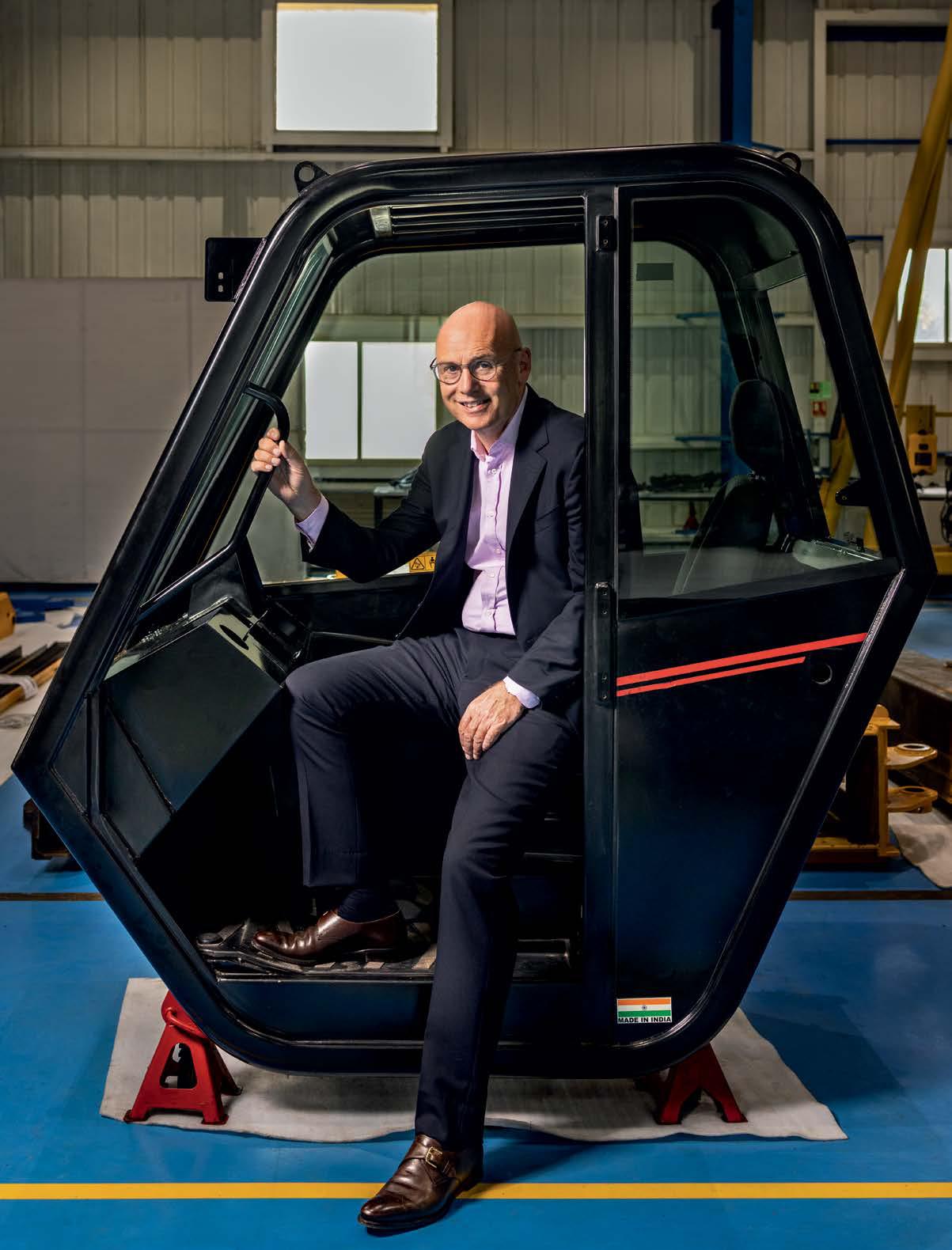يحاول ذهب - حر
AN UNBREAKABLE BOND: WARREN HARRIS, CEO & MD OF TATA TECHNOLOGIES AND A TATA VETERAN, FEELS HIS FIRST MEETING WITH RATAN TATA SET THE TONE FOR THE FUTURE.
September 2025
|Fortune India
ON A CRISP November afternoon in 2005, Warren Harris walked into the opulent Four Seasons Hotel George V in Paris to meet Ratan Tata for the first time. The French capital was slipping into winter—the air sharp, Christmas markets luring early buyers with their festive warmth. Harris, then head of engineering services firm INCAT—which had been taken over by Tata Technologies just three months ago—had spoken with Tata only over the phone. “We had a couple of conversations about the opportunity to converge INCAT with the Tata company,” Harris recalls.

Tata, meanwhile, was in Paris for Falcon jet training. His day had started early at Le Bourget, where he was on a flight simulator at 4 a.m. “When we met that afternoon, he was clearly tired, but he was extremely gracious. We exchanged pleasantries over coffee, and then he invited me for dinner,” says Harris.
That dinner stretched from 7 p.m. to well past midnight. It was more than a meal—it was an initiation into the world of Tata. Ratan Tata spoke with quiet conviction about his vision for Tata Technologies, about India’s future, and about the Tata group’s role in shaping the country’s industrial ambitions. “It felt like I had met the Pied Piper. All I wanted to do was drop everything and follow him,” Harris remembers. “He was such an inspiration.”
That evening cemented Harris’s commitment to Tata. Tata Technologies, a subsidiary of Tata Motors, had acquired INCAT International for £53.4 million. This significantly expanded Tata Technologies’ presence in automotive and aerospace engineering, adding global scale and capabilities. Two decades later, the British-born executive, now CEO & MD, is among the longest-serving expatriates in the salt-to-software conglomerate. Under his leadership, Tata Technologies went public in November 2023, reporting a profit of ₹624 crore on revenues of ₹4,414 crore in FY23.
By FY25, the revenues rose to ₹5,168 crore with net profit of ₹677 crore. And by mid-August this year, the company commanded a market capitalisation of around ₹27,000 crore.
According to Harris, Tata’s vision for Tata Technologies was never to replicate TCS. He wanted it to become a showcase of India's innovation and engineering strength, a platform for creating intellectual property and products with global impact. “He believed Indian engineers were resourceful,” says Harris, “and that they could create solutions that would succeed not only in India but across the world.”
هذه القصة من طبعة September 2025 من Fortune India.
اشترك في Magzter GOLD للوصول إلى آلاف القصص المتميزة المنسقة، وأكثر من 9000 مجلة وصحيفة.
هل أنت مشترك بالفعل؟ تسجيل الدخول
Listen
Translate
Change font size
